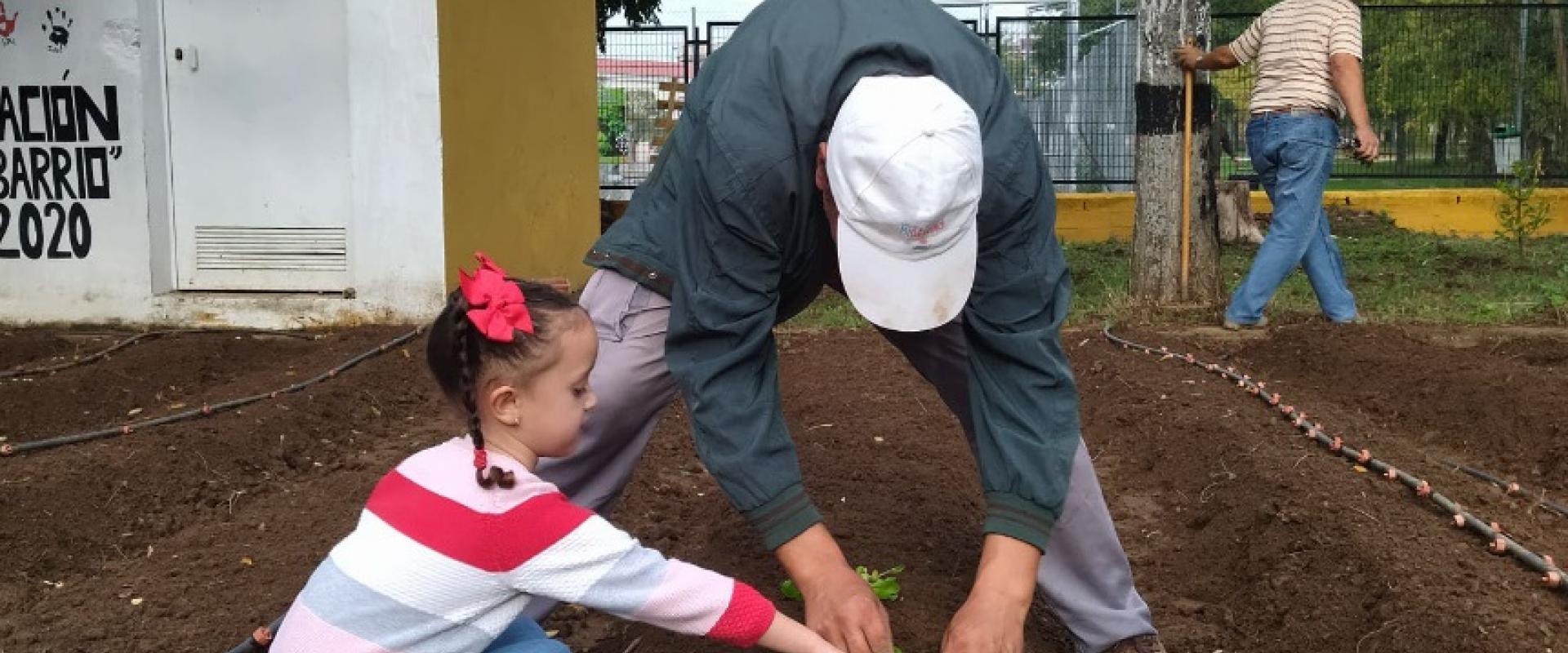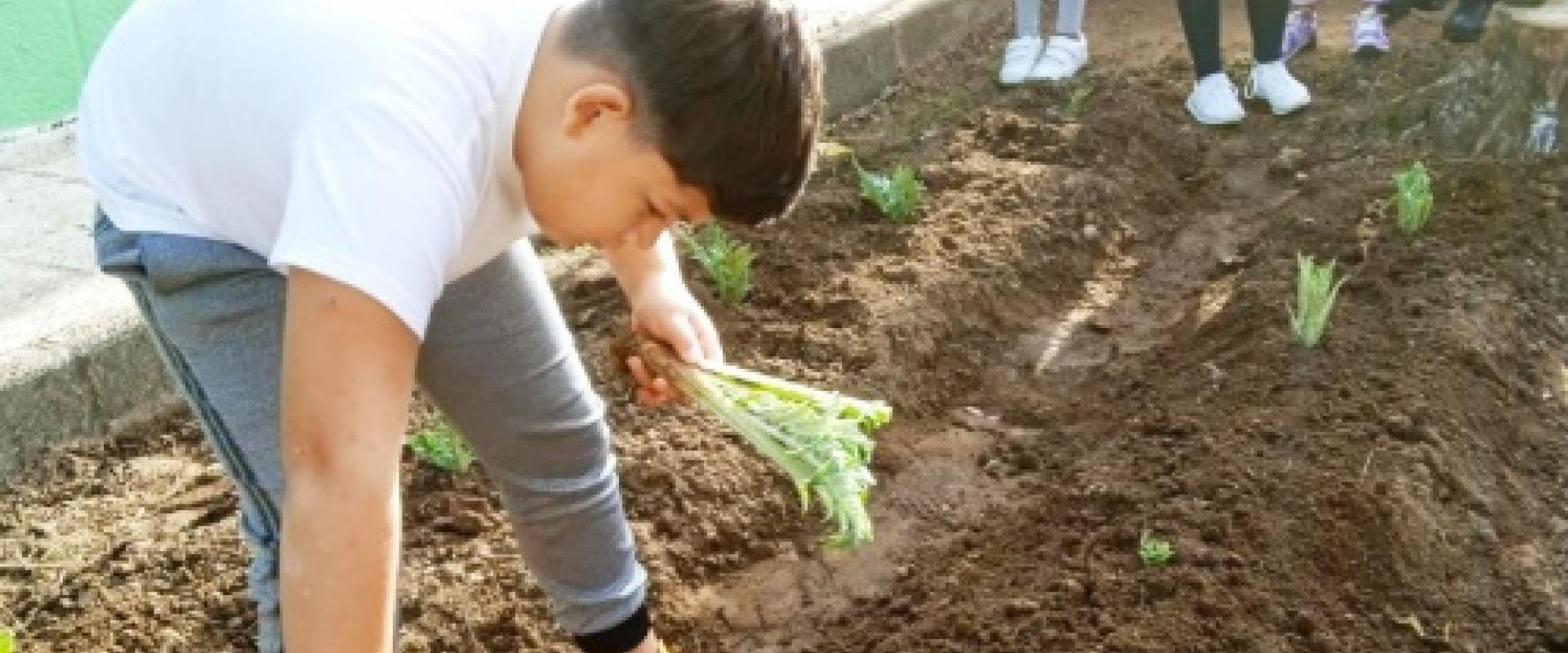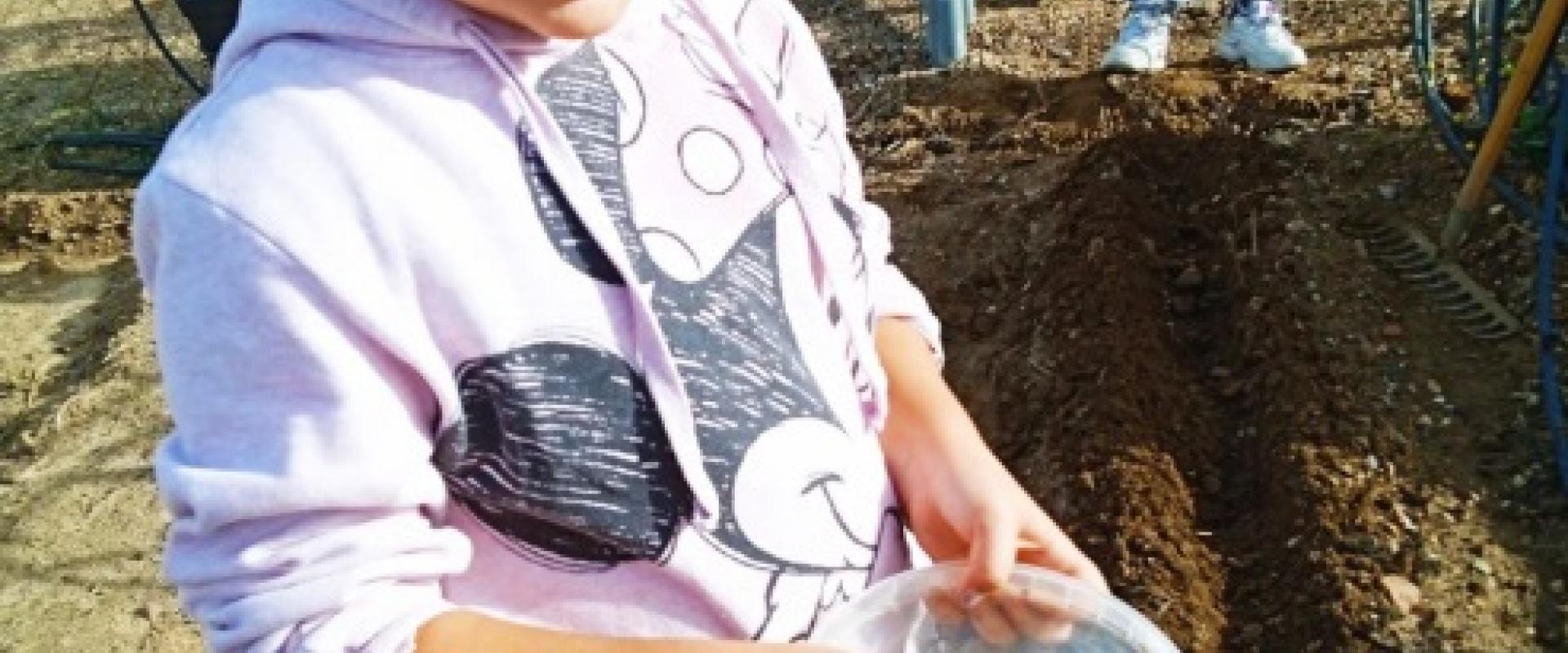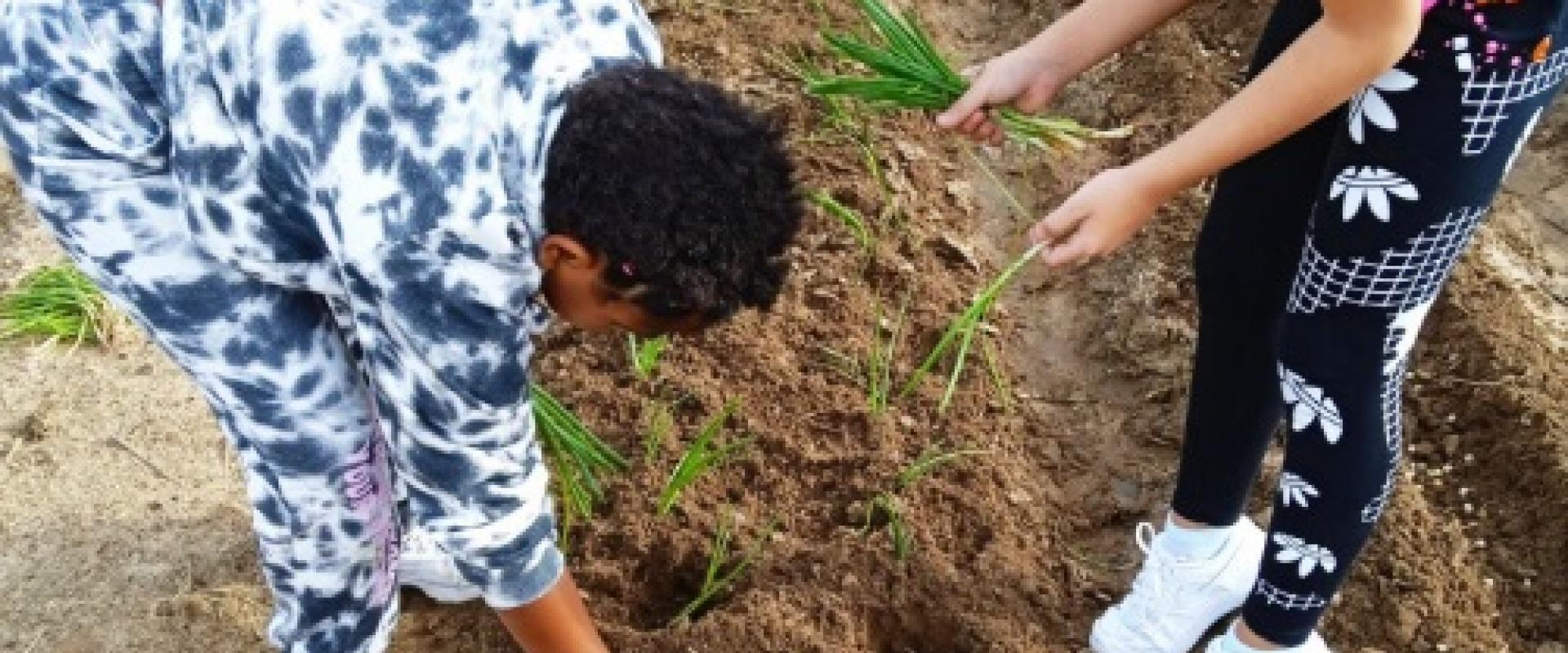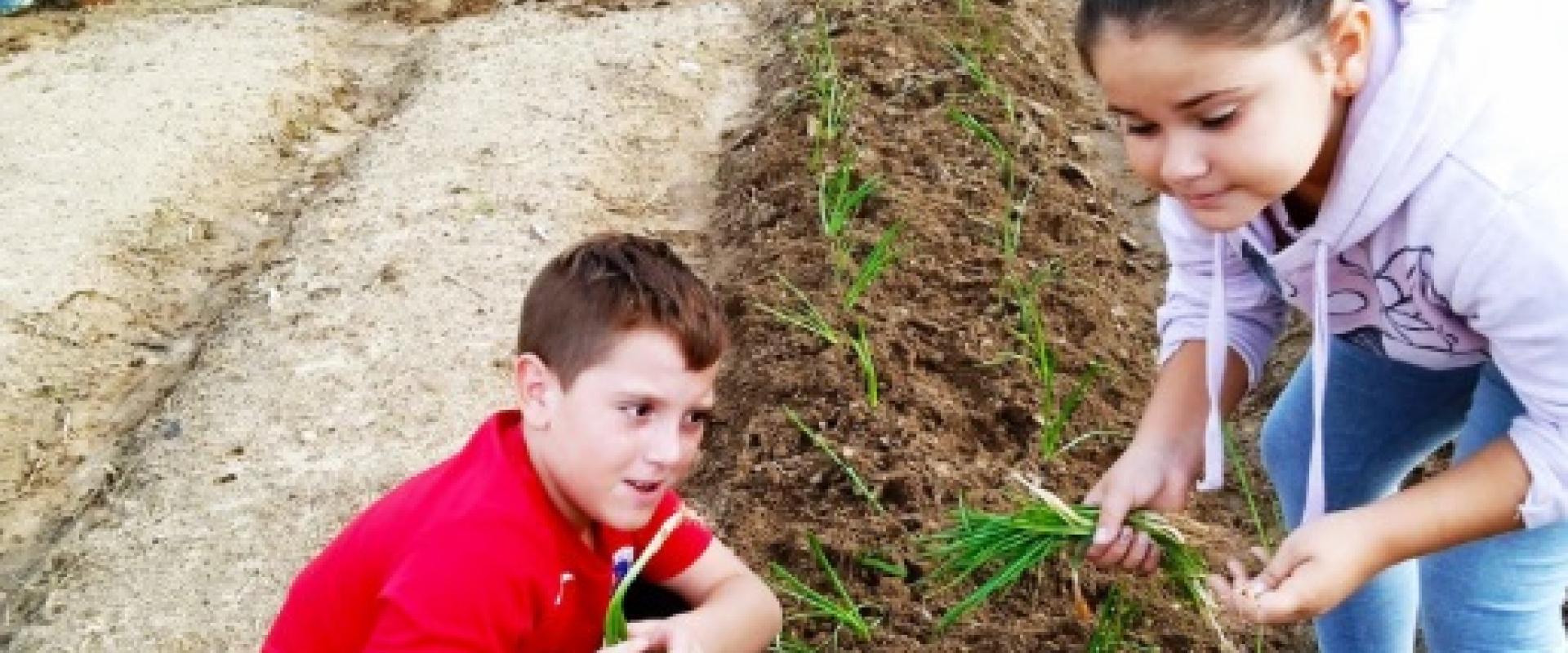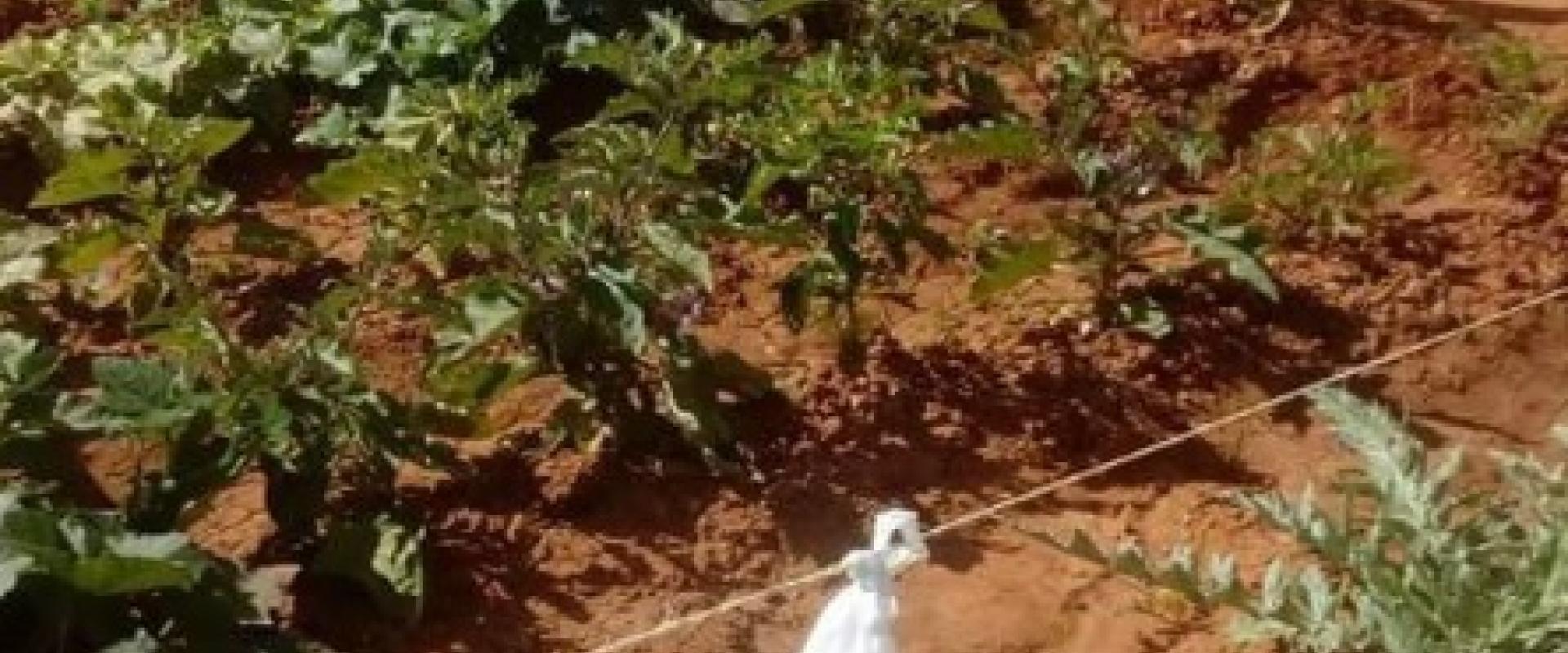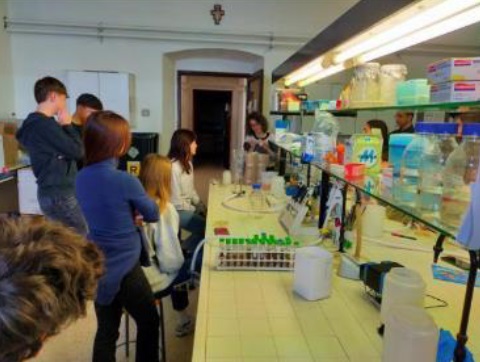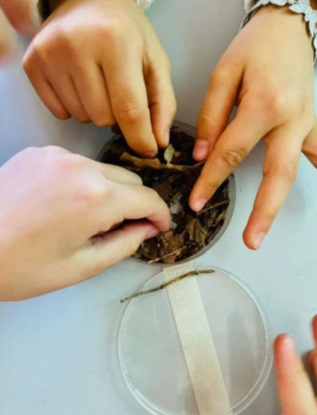Urban Vegetable Gardens
The Urban Vegetable Gardens are a collective project of an entire neighborhood in the city of Badajoz, pioneers in Extremadura, which arose from the Neighborhood Association in Suerte Saavedra in order to generate new social relationships.
Description
Age of pupils: 1-11 years
The Urban Vegetable Gardens are a collective project of an entire neighborhood in the city of Badajoz, pioneers in Extremadura, which arose from the Neighborhood Association in Suerte Saavedra in order to generate new social relationships. There were several motivations that mobilized these citizens, on the one hand, the need to improve the image of the (marginal) neighborhood through the involvement of young and old around this social project; and on the other hand, the use of land/soil (which had no previous utility) to produce and create food in a sustainable way.
This initiative has become a great success and has created a great community that works around
three main axes:
- The care of the soil, its reuse and exploitation (ecological awareness).
- Social movement of support and improvement of a marginal neighbourhood.
- The training and awareness of citizens through workshops and seminars: from the youngest to our elders.
Regarding the youngest, this initiative collaborates with Manuel Pacheco Public School (in the same neighbourhood) since 2016. The children of this School usually go weekly to “work” in the Urban Gardens. Once here, and depending on the season they receive “in field training” from the urban garden ́s managers on the different activities that each season demand. That learning is nourished by an exchange of knowledge that reflects both the agrarian memory of some and the desire to create new intergenerational links. The children collaborate in the complete cycle of cultivation:
- Preparing and caring the soil (the use of pesticides is forbidden)
- Weeding
- Seeding
- Harvesting
All these activities are carried out following next principles:
- Respect to natural systems and cycles
- Preserve and improve soil
- Improve health of people, plants and animals
- Contribute to achieve a high degree of biodiversity
- Make responsible use of energy and natural resources
Furthermore, and once the fresh and ecological products are obtained, a barter market is organised and held by the Manuel Pacheco Public School and the pupils working in the urban garden. This market works as follow: the children bring non-perishable products from their homes to the school and exchange them for fresh fruit and vegetables. With this activity the School gets two goals:
- In the one hand, that the families in the neighbourhood have and eat fresh products (encouraging good and healthier consumption habits)
- On the other hand, to help to the neediest families in the neighbourhood. These non-perishable products are kept at the School as a larder and later distributed among those disadvantaged.
This is a recurring exercise, where around 500 children (from 1 to 11 years old) have participated in this joint initiative since 2016.
